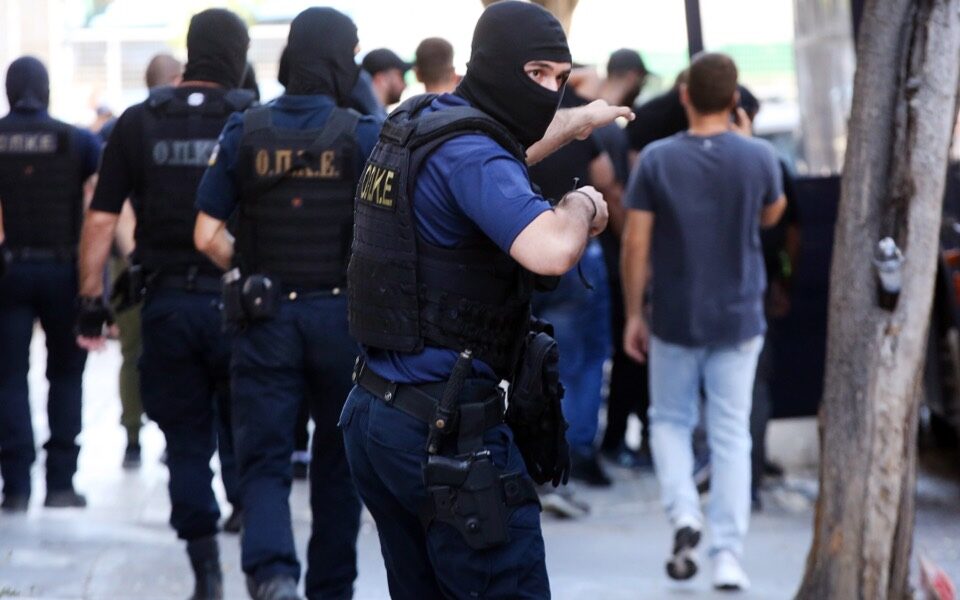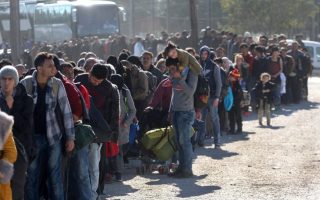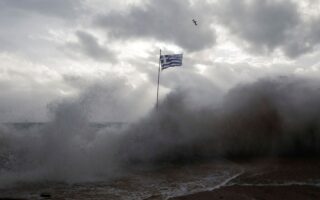For a new public safety culture

There is a common thread linking February’s deadly train crash at Tempe, July’s devastating wildfire on the island of Rhodes, the explosion at an ammunitions dump in Nea Anchialos that same month and the more recent events in the Athens suburb Nea Filadelfia, and that is the complete absence of a public safety culture.
In the case of Tempe, the telecommand system was out of operation and no one in charge thought to ask what would happen if two trains ended up on the same track heading toward each other. On Rhodes, no one had bothered with fire buffers or some sort of early spotting system, while the local civil protection bodies were underperforming. In Nea Anchialos, an internal inquiry found a completely inadequate fire safety system at the military base where the Air Force stored ammunition. And in Nea Filadelfia, the Hellenic Police either ignored or underestimated the warnings of foreign services about the dangers linked to the soccer match in question.
Every case was different, but the result was similar or the same. Lives were lost or imperiled because of bureaucratic inertia and poor political choices. Tragic errors that cost society dearly are often made in the chaotic system of public administration where jurisdiction can be vague. Better coordination between departments and services is definitely required, but at the end of the day, nothing good will emerge if the mentality regarding public safety doesn’t change.
A comprehensive new approach to the issue is what is called for, a new culture that is defined by a set of rules, practices and values that govern how civil servants, uniformed officers and citizens think and act. In other words, public safety needs to be everyone’s business to the corresponding extent. We are not only talking about combating crime and maintaining law and order. Any threat that endangers the lives and properties of citizens must be perceived as a matter of public safety. An effective security culture, therefore, requires political and social consensus and convergence. In a country that still suffers from certain complexes whose roots lie in the past, the notion of public safety needs to be expanded.
The question that emerges is how theory can be turned into action. For starters, the state needs to invest in the resilience of infrastructures and ecosystems. Transport networks need to be upgraded and cities made more resilient toward climate change. These initiatives could be bankrolled through the Recovery Fund and private sources. At the same time, society needs to adopt a more responsible safety culture through education and awareness.
Tragic errors that cost society dearly are often made in the chaotic system of public administration
In the United States, for example, volunteerism and civic engagement are being increasingly mobilized to the defense of public safety and the prevention of manmade crises. In Ireland, Lithuania and Germany, civil society works with the authorities to combat criminality and other threats through innovative forms of policing like neighborhood watches, while in Israel, awareness over public safety is particularly enhanced so that society can respond to military threats.
In Greece’s case, some efforts are being made to partially decentralize the different areas of civil protection, though bolstering the responsibilities of regional and local authorities is not enough. After all, they are beset by the same shortcomings that ail the central administration. What is needed is a redistribution of roles. A healthy safety culture allows the state to diagnose the needs at the local level and incorporate them into its policy. This also strengthens citizens’ compliance with a set of commonly accepted rules and practices. After all, feeling safe is a basic public and human right. This is why we need safety to become more democratic, in the sense that society is an active participant in securing the country’s resilience.
Greece is at that critical point where the failure to manage a string of crises has started to erode the social contract. The state’s main mission is to protect lives and property. When it fails in this duty, it undermines the legitimacy of the political system and institutions. Everyone is being judged, all the time – and this is something that needs to sink in. The country cannot keep stumbling along with a laissez-faire attitude.
Manos Karagiannis is a professor at the University of Macedonia and a reader in international security at King’s College London.





